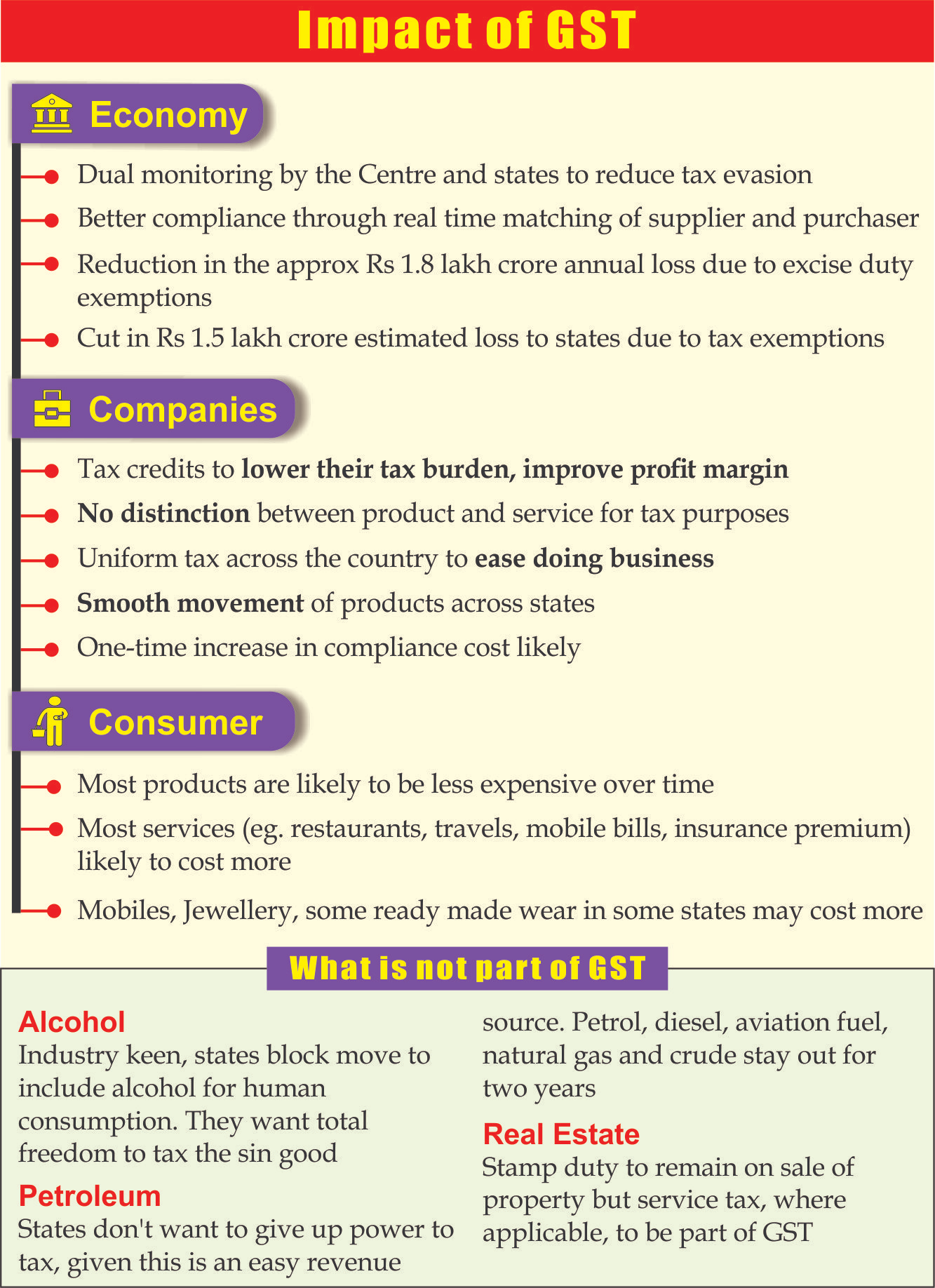Chhattisgarh Recorded the Highest GST Growth Rate | 04 Jul 2025
Why in News?
Chhattisgarh topped the country in Goods and Services Tax (GST) collection growth, posting an 18% increase over the previous fiscal year 2024-25.
Key Points
- Factors Behind Chhattisgarh’s GST Growth:
- Growth in GST Collections:
- Chhattisgarh's total GST and VAT (Value Added Tax) revenue for FY 2024–25 reached Rs 23,448 crore, accounting for nearly 38% of the state’s own tax collections.
- VAT: Tax on goods sold, applied at each stage of the supply chain. It is imposed on goods that are excluded from the GST regime like alcoholic beverages, petroleum products etc.
- This sharp increase in tax revenues highlights the effectiveness of its policy measures and enforcement strategies.
- Chhattisgarh's total GST and VAT (Value Added Tax) revenue for FY 2024–25 reached Rs 23,448 crore, accounting for nearly 38% of the state’s own tax collections.
- Streamlined GST Registration Process:
- One of the key reforms that contributed to this success is the reduction of GST registration time from 13 days to just 2 days, significantly improving the ease of doing business in Chhattisgarh
- Technology-Led Monitoring and Enforcement:
- The state has employed advanced technology to monitor and recover evaded taxes.
- Targeted drives and enhanced enforcement actions, such as the establishment of GST offices across all 33 districts, have ensured transparency and better taxpayer services.
- Growth in GST Collections:
Goods and Services Tax (GST)
- About:
- GST is a value-added tax system that is levied on the supply of goods and services in India.
- It is a comprehensive indirect tax that was introduced in India on 1st July 2017, through the 101st Constitution Amendment Act, 2016, with the slogan of ‘One Nation One Tax’.
- GST Council:
- About: The GST Council, a constitutional body under Article 279-A (101st Amendment, 2016), makes recommendations on GST implementation.
- GST is a value-added (Ad Valorem) and indirect tax system that is levied on the supply of goods and services in India.
- Members: The Council includes the Union Finance Minister (Chairperson), Union Minister of State (Finance), and a finance or any other minister from each state.
- Nature of Decisions: In the Mohit Minerals case, 2022, the Supreme Court ruled GST Council recommendations are not binding, as Parliament and states have simultaneous legislative powers on GST.
- About: The GST Council, a constitutional body under Article 279-A (101st Amendment, 2016), makes recommendations on GST implementation.

